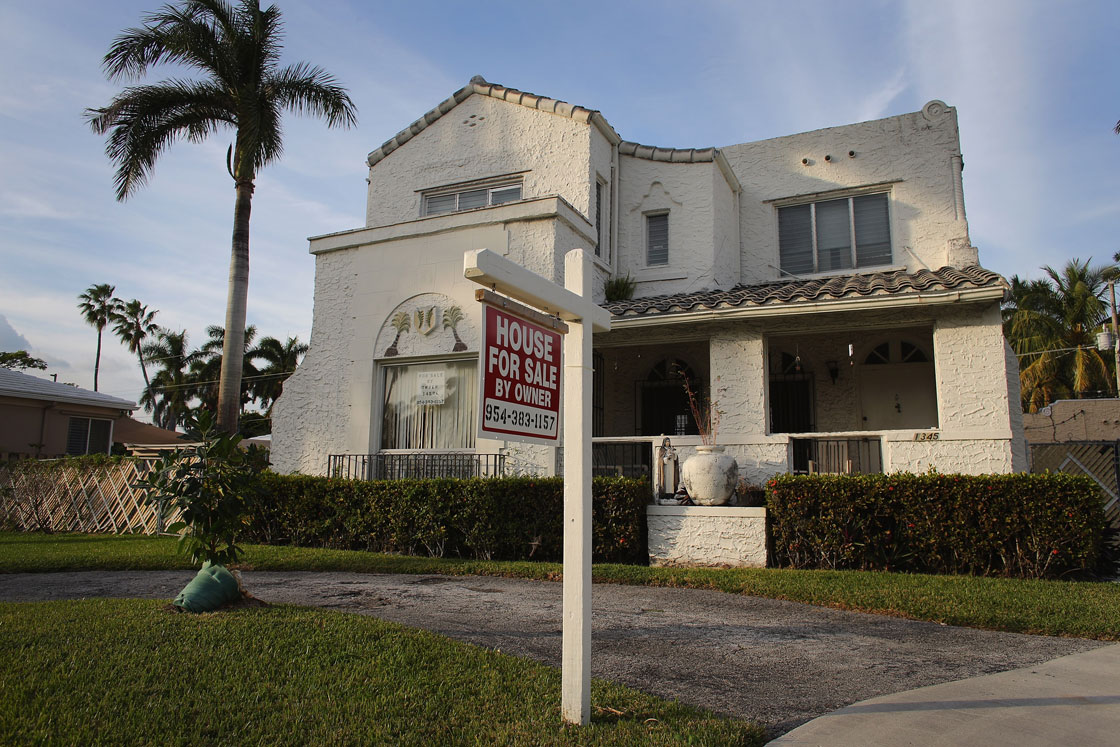TORONTO – The number of homes sold across Canada dropped by nearly 16 per cent on average in February as tighter rules on mortgages introduced last summer continue to take heat off the market.

The Canadian Real Estate Association (CREA) said Friday the biggest drops in the number of listings were in the Greater Toronto Area, Montreal, Vancouver and Saskatoon.
Across Canada, the average home price dipped by one per cent to $368,895.
CREA said the average home price is lagging because of a slump in sales in Vancouver.
Steven Fudge, a Toronto realtor with Bosley Real Estate, weighs in on how this will affect home buyers.
Global News: Home sales dropped by 15.8 per cent in Canada -what does this mean for buyers?
Steven Fudge: While I can’t comment on the dynamics of the market across Canada, in the original City of Toronto we’re still experiencing an active freehold market with a lack of supply and an extraordinary demand. In fact, for well-priced desirable downtown properties the bidding wars are back full tilt with a heightened competitive vehemence. All month my freehold housing buyers have consistently been competing against four to fourteen other buyers in their efforts to secure the better properties.
However, it’s a bit different in the condominium market. While affordable well-designed suites are moving quickly, as you move into the mid $400,000 range (and beyond the threshold of affordability of first time buyers) the market is, by and large, prone to sputtering. However, what’s really dragging the market down is the over-supply of those poorly-designed cookie-cutter units that have been the mainstay of the investor market. Condominiums with thoughtful efficient space plans, well-executed finishes, good views and outdoor space remain the kind of places that owner-occupants-to-be are seeking to purchase. While bidding wars are common for freehold houses, they’re much rarer in the condominium market. In fact, most of my condominium buyers have been able to negotiate their purchases this year for under list price.
GN: Did you notice any changes in Toronto in February?
SF: Although the statistics showed a decline in sales in the Toronto housing market it is, in part, due to a lack of supply of good freehold properties. The freehold housing market still has more buyers than sellers. Whereas the decline in condominium sales does reflect fewer purchasers entering the market as more listings come to market.
As a result, one can’t claim the entire Toronto housing market is in decline. It truly depends on what kind of property you’re looking for, and where it’s located. If you’ve got a thoughtfully renovated house in a desirable neighbourhood, or a stylish condominium in a stable building in a convenient location, your property is still a contender to attract a bidding war. Well-managed income properties in decent condition are also a hot commodity and very much in demand. However, if your property isn’t fitting all those criteria, you may have to be prepared to wait for the right buyer, or reduce your price.
GN: Will this drop in home sales make buying a house more affordable?
SF: At the moment there’s a spike in housing values which is stretching the affordability limits of most buyers. Over the past two weeks, a row house in Roncesvalles and a semi-detached dwelling in Riverdale (both three bedrooms with laneway parking) were brought to market at $549,000 with a holdback on offers. Both of them garnered multiple bids and shot up 19% over their asking prices. Without question, the price point attracted the interest, but the fact that both of these properties needed substantial renovations at a cost anywhere between $200,000 and $300,000 demonstrates that housing is no longer as ‘affordable’ as it was once considered.
GN: Are the new terms for mortgages impacting the market?
SF: As the freehold and condominium markets spin apart, it appears the glue keeping them together are the current mortgage rates. Although it made headlines earlier this month when the Bank Of Montreal cut its mortgage rate to 2.99% for a five year term in order to attract new clients, the truth of the matter is that prudent mortgage borrowers doing their research already know they can secure a rate like this, if not better (as low as 2.79% from a reputable lender) through different lending institutions.
Interestingly, urbaneer.com is finding a lot of our clients are considering securing a ten year fixed mortgage on their next purchase as a strategy to weather the inevitable higher interest rates predicated in the next few years. Given one can secure a ten year mortgage rate for a reasonable sum, there is merit in securing a long term fixed rate providing your objective is to stay in the property for the full duration of the term.
GN: Can Canadians expect a sales rebound soon?
SF: In downtown Toronto, prices for condominiums dropped during the months of November and December, which prompted buyers to return to the market full force in January. In my opinion, as long as condominium prices remain within the range of affordability for first time buyers, I believe we’ll see continued momentum in that market for good product. In the freehold housing market, we’re caught in the market doldrums typical of early Spring where a lack of supply is common. Afterall, the snow has only just melted and a lot of Sellers are still getting their places prepared to come to market. As the weather improves, we’ll see a steady stream of new listings ready for eager house Buyers. In my opinion, as long as more houses come for sale, the sales figures will increase.



Comments